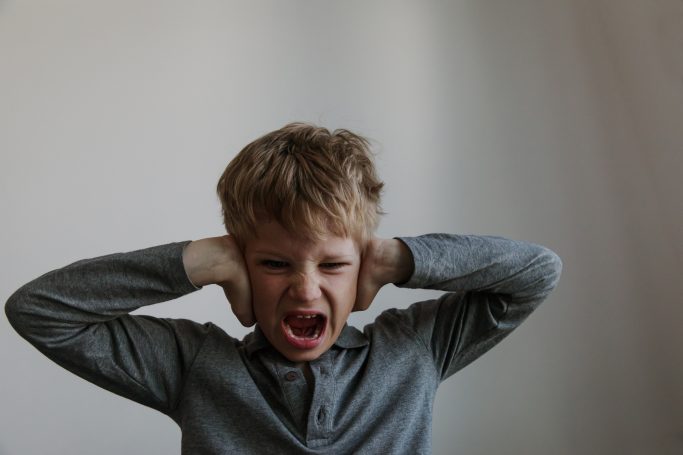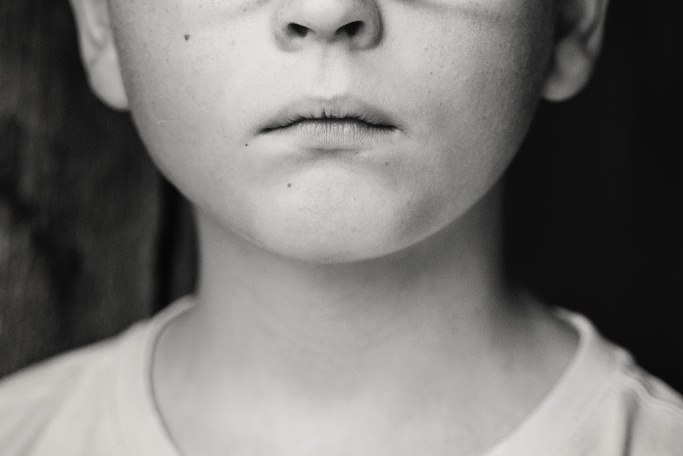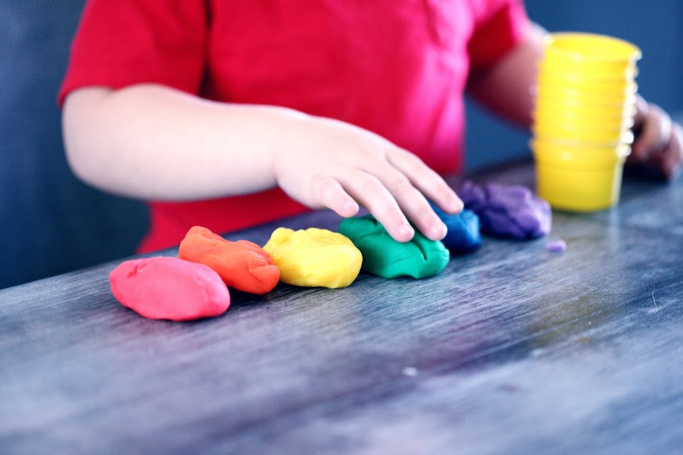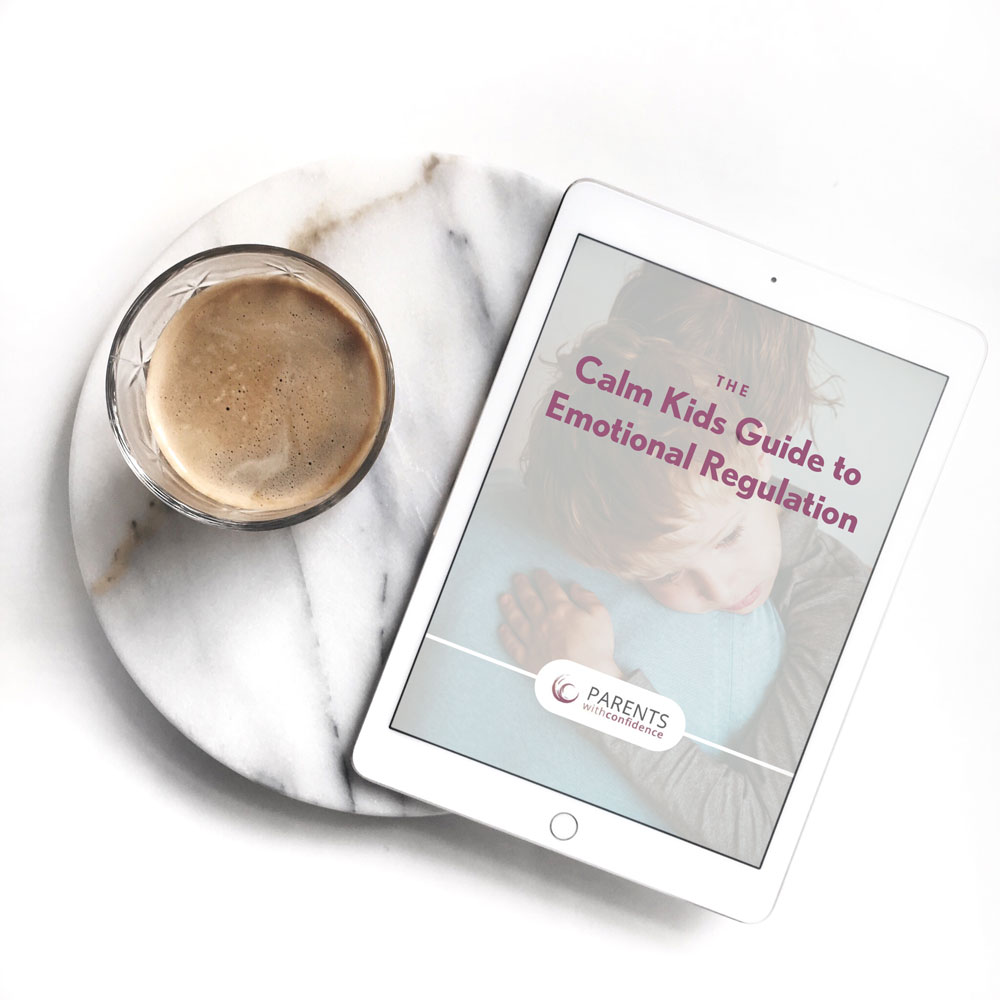How to Help a Child Deal with Anger Now and Throughout Life
How to Help a Child Deal with Anger Now and Throughout Life
Inside: Learn essential strategies for helping a child deal with anger and why research shows them to be effective throughout life, from a child therapist.
A few times a month my 4-year-old plods down the stairs in his pull-up promptly inquiring “can I please have a piece of my candy for breakfast?”
Really? You don’t remember my response the last 23 times you’ve asked this question at 6:30 in the morning?
Candy or gum have never been items available on our breakfast menu in the past but this doesn’t stop him from giving it a good solid attempt every couple of weeks.
As the word dreaded by small children all around the world starts to come out, I already know what’s next, pure unbridled 4-year-old anger. (I actually wonder if on some subconscious level he knew the answer would be no and just needed a quick and predictable path for his anger to escape.)
Before my full response has even left my mouth the crying and yelling begin.
Helping a child deal with anger is one of the most overwhelming aspects of raising a little human being.
Where we’ve gone wrong in helping our kids deal with anger
Helping a child deal with anger is overwhelming, leading many parents down one of two paths; getting frustrated at their child’s anger and jumping into a power struggle OR feeling panicked and quickly trying to shut the anger down with the universal (but oh so unhelpful) ‘calm down!’.
Most of us have said these well-meaning things at some point in our parenting journey (namely because we weren’t given the tools to handle emotion ourselves as kids) but it’s time we step up to the plate of helping our angry child, because just like my little guy needed help learning to tie his shoes or brush his teeth, he also needs help learning how to manage his anger.
What you need to know before helping a child deal with anger
As it turns out there’s good reason navigating anger management for kids is so complicated.
Anger is commonly known as a ‘basic emotion’ (one that’s universal to all humans), but where it gets a tad trickier is that anger often shows up as a ‘secondary’ emotion because it occurs as an emotional reaction to another emotion.
This is also why we hear the phrase, ‘anger is a mask’ because often other complicated emotions lie underneath the anger.
For example, when my little man threw out his request for leftover Easter candy in the morning, he likely felt a range of other subconscious emotions first such as insecurity (perhaps he was looking for boundaries from a trusted adult?) powerlessness (I need to make my demands known!) disappointment (awe man that stuff tastes so good and now I can’t have it!) or tiredness (my logical brain isn’t fully on yet!).
Your child’s anger is quick to jump to the rescue for a couple of reasons:
- Anger serves as an adaptive/survival emotion for humans signaling a possible threat, helping us communicate with others and propelling us to achieve goal-directed behavior.
- Anger is easier to express than more deep and vulnerable emotions, giving us the illusion of power and control in a moment where in fact, we’re likely feeling very weak and emotionally fragile.
- Children are much more impulsive with emotions due to their still-developing frontal lobe and cortex.
Think about helping your child deal with anger as a journey and not a destination. Kids will need ongoing support and teaching to cultivate healthy relationships with their emotions, especially complicated ones like anger.
These anger management techniques will help you feel confident you’re providing your child a healthy roadmap for handling anger, both now (and perhaps most importantly) into adulthood.
(It includes all the tools you need to help your child master their anger and other big emotions)
A practical and effective roadmap for anger management with kids
| Normalize all emotions (including anger)
Anger is scary for a child! The physiological changes that happen with an anger response highjack your child’s brain making it hard (or downright impossible) for them to think clearly and act rationally.
When big emotions swell up fast, the feeling can be unsettling. Teaching your child that anger is their bodies natural way of alerting them that something isn’t quite right, will help this intense emotion feel less overwhelming.
| Be proactive, not reactive.
Talking about intense emotions in the heat of a meltdown or argument is going to be 110% worthless. Why? When your child is in a state of high emotional arousal they aren’t going to hear or remember much (if anything) of what you’re saying.
We know that when the emotion center of the brain is highly activated we lose access to the thinking part of the brain (this is why your mind goes blank before a big presentation, although with anger it happens on an even larger scale!).
Provide frequent and ongoing opportunities to talk about emotions and coping skills for anger during normal everyday life, so your child has a chance to commit these life-changing skills to memory. Team up to make a plan for how to calm down when angry before anger strikes.
Give them a lifeline
The most powerful way to help an angry child is for you, the parent, to stay calm yourself. Next to experiencing intense emotions, seeing a parent lose control tops the list of things that scare a child.
You are your child’s guidepost and they’re counting on you to stay in control when they can’t. The cold hard truth? If you’re not ready to hold yourself accountable when emotions are running high, you shouldn’t expect your child to.
| Explore their triggers
‘Thorns’ and ‘anger buttons’ are two words I use often with my young therapy clients to refer to common themes, situations, or places where our anger tends to pop up most frequently.
Helping your child reflect on what things usually happen before ‘their anger comes out’ is a powerful way to cultivate self-awareness and become better prepared for when tricky situations reoccur in the future.
| Teach emotion vocabulary
When you give your child a wide range of emotion vocabulary, you’re giving them a vehicle to better understand what they’re experiencing and also how to express it appropriately.






0 Comments:
Post a Comment
<< Home